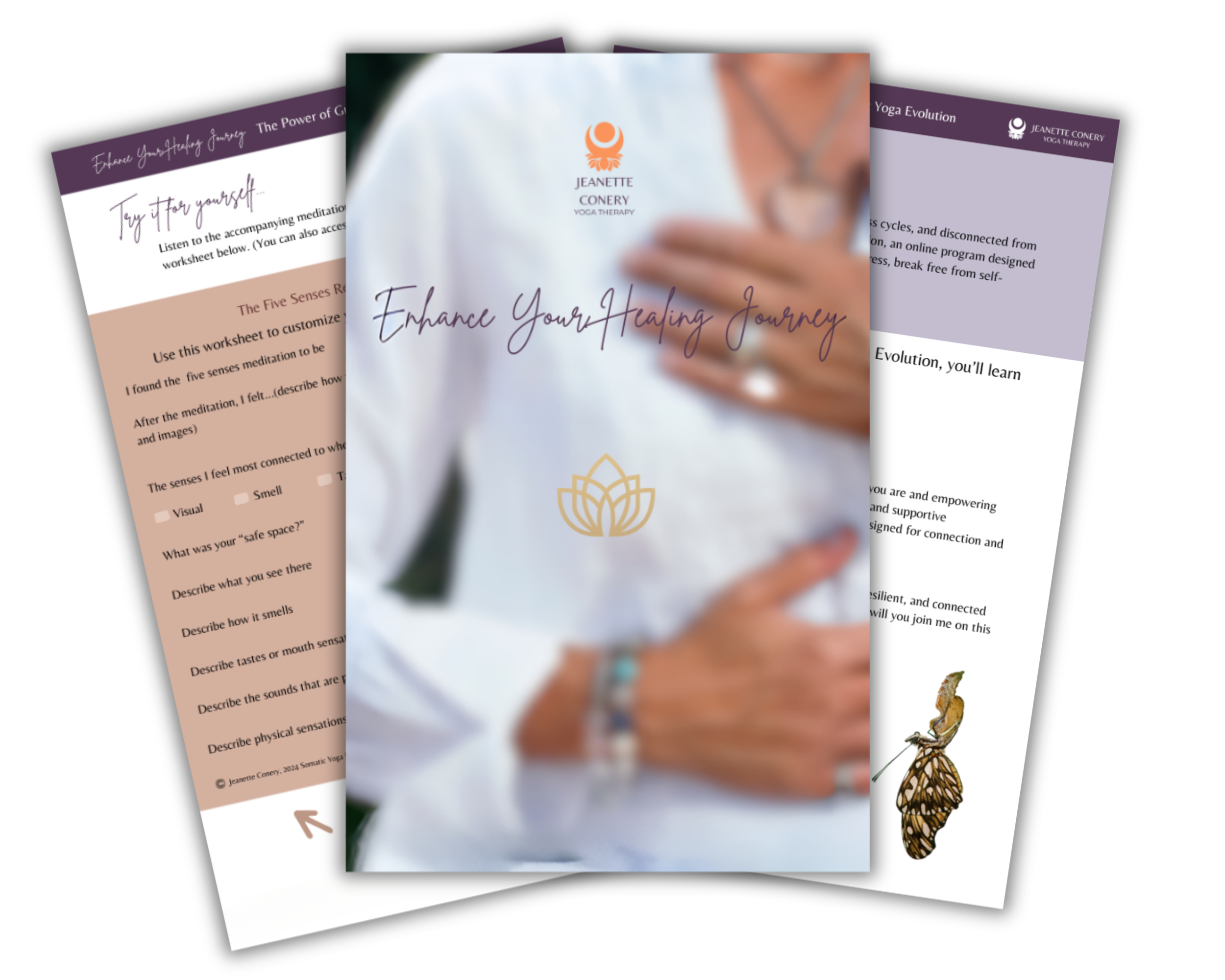Increasing Heart Rate Variability to Heal From Chronic Stress and PTSD
Increasing Heart Rate Variability to Heal From Chronic Stress and PTSD
Did you know that when you’re at rest, your heart rate is not constant? Well, it shouldn’t be. That’s right—your heart rate will speed up and slow down depending on whether you’re inhaling or exhaling. Specifically, it will increase slightly on the inhale and decrease on the exhale. This is called Heart Rate Variability (HRV). It’s measured as an average of the difference in time (in milliseconds) between heartbeats. So, when you’re resting, a high HRV is desirable, while during exercise, a low HRV is normal.
You’ve probably heard of HRV—after all, it’s gaining attention in the health and fitness world. With devices like Apple Watches and FitBits now capable of monitoring HRV, it’s gone mainstream. But what does this nifty health statistic really mean, and what does it have to do with yoga?
What is Heart Rate Variability and Why Does It Matter?
HRV is heavily influenced by your parasympathetic nervous system, specifically the vagus nerve (also known as cranial nerve X). Your parasympathetic nervous system (PNS) is the part of your body that promotes relaxation, safety, and social connection. Think of it as the brake system to your fight-or-flight response. When your PNS is activated, it encourages feelings of calm and contentment, enabling you to engage in meaningful relationships and focus on life’s fulfilling pursuits.
Low HRV, which means your heart rate is relatively constant, is linked to stress, anxiety, chronic pain, inflammation, and other health issues. High HRV, on the other hand, reflects a balanced nervous system, resilience to stress, and overall well-being.
How Yoga Increases HRV and Nervous System Resilience
Yoga has been scientifically shown to improve HRV through a variety of mechanisms. By integrating breath control, mindful movement, and deep relaxation, yoga activates the parasympathetic nervous system and shifts the body away from chronic stress states. Don’t just take my word for it—researchers agree. Study after study shows the power of yoga to increase HRV and improve health outcomes across a range of conditions:
Rheumatoid Arthritis: A 12-week randomized controlled trial (RCT) found that yoga therapy reduced disease activity, inflammation, and improved HRV when combined with standard medical care.
Cardiac Health: A yoga-based cardiac rehabilitation program significantly increased HRV and reduced stress in post-heart attack patients.
Chronic Pain: A 3-month yoga therapy intervention shifted the nervous system toward parasympathetic dominance in patients with chronic low back pain.
Mental Health Professionals: A study found that yoga improved autonomic nerve activity and stress adaptation among professionals facing high-stress work environments.
These findings confirm that yoga isn’t just an exercise routine—it’s a comprehensive tool for nervous system regulation and healing. For more on the science behind somatic yoga, read my blog on the Window of Tolerance.
The Role of the Heart Chakra in Healing
Beyond its physiological effects, yoga offers deeper, energetic benefits. The heart chakra, or Anahata, is the energetic center of love, compassion, and emotional healing. When balanced, it allows us to experience connection with others and ourselves, fostering self-acceptance and emotional resilience.
The practices of somatic yoga are particularly potent for opening and balancing the heart chakra. Gentle movements, heart-centered breathwork, and guided meditations help release trapped emotional energy while cultivating a sense of safety and openness. A balanced heart chakra promotes self-compassion, forgiveness, empathy, and the courage to face life's challenges with a calm and steady heart. To learn about the role of self-compassion in trauma healing, read my blog, “Why Self Love Isn’t Easy After Trauma and Why That’s Okay.”
Somatic Yoga Evolution: A Path to Nervous System Regulation and Emotional Healing
The ability to increase HRV and regulate your nervous system is a game-changer in healing from chronic stress and PTSD. This is precisely the transformation offered in the Somatic Yoga Evolution Level 1 program. Designed to help you break free from cycles of stress and self-judgment, this course provides weekly modules that guide you in practices like body awareness, emotional integration, and heart-opening techniques.
By joining this program, you’ll learn how to:
Increase HRV and build resilience to stress.
Release stored emotions and energy from your body.
Develop emotional intelligence and self-compassion.
Feel more connected to yourself and your loved ones.
Imagine walking through life with a greater sense of calm, clarity, and connection. This isn’t just a possibility—it’s within your reach. Start your journey today with Somatic Yoga Evolution and rediscover your inner peace and resilience.
Coming in 2025…
My online class, Somatic Yoga Evolution, will be available in 2025. I’ve been pouring my love into this class for a long time, and I’m so happy I will soon be able to share it with you. In Somatic Yoga Evolution you will:
Learn how your nervous system works, and why your reactions are not your fault!
Finally feel comfortable being present in your own body.
Connect with others on the same journey.
Use multiple techniques to regulate your nervous system.
Release stored emotions.
Customize your somatic yoga practice to fit your needs.
Free access to the course for one year.

